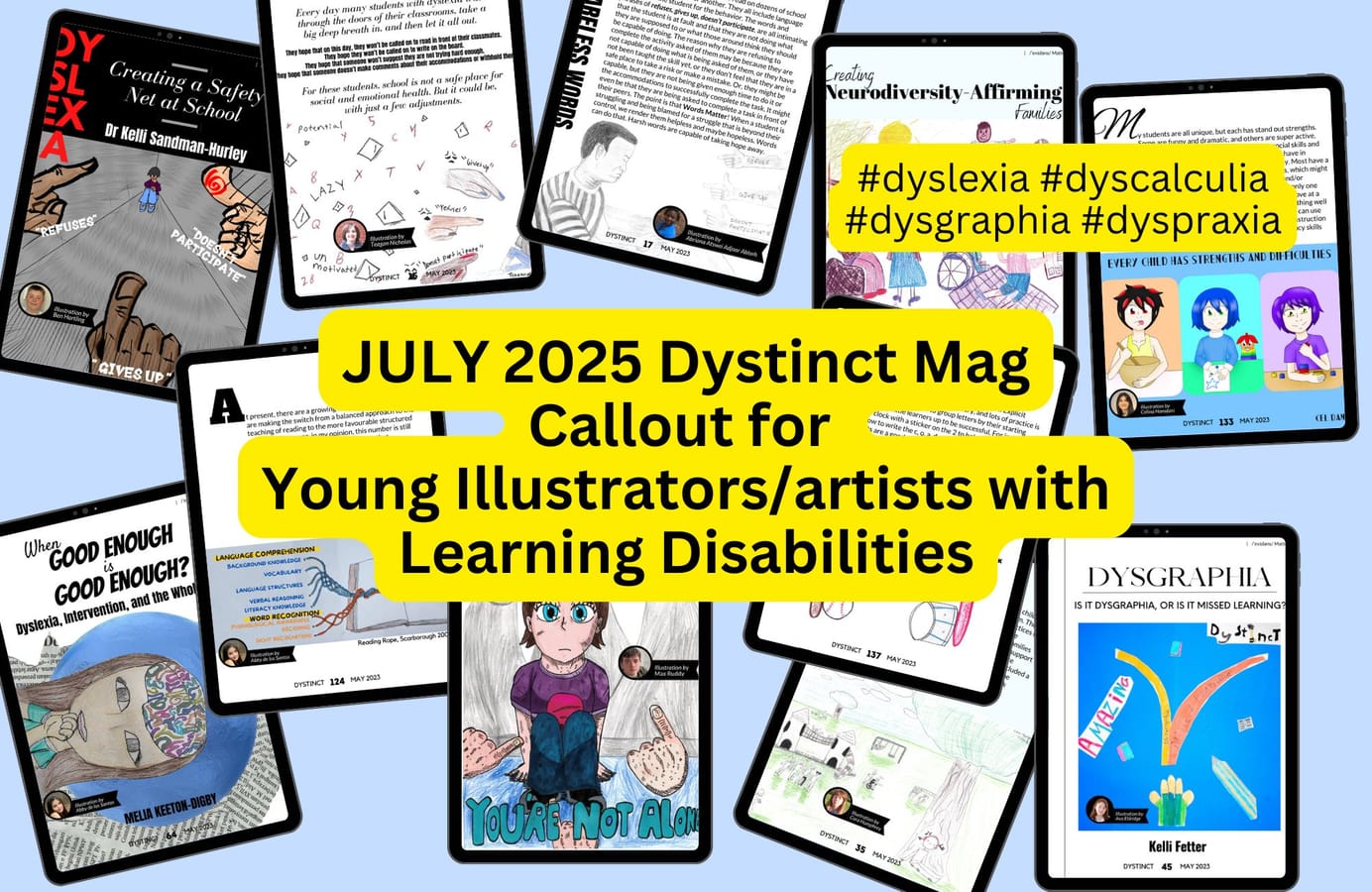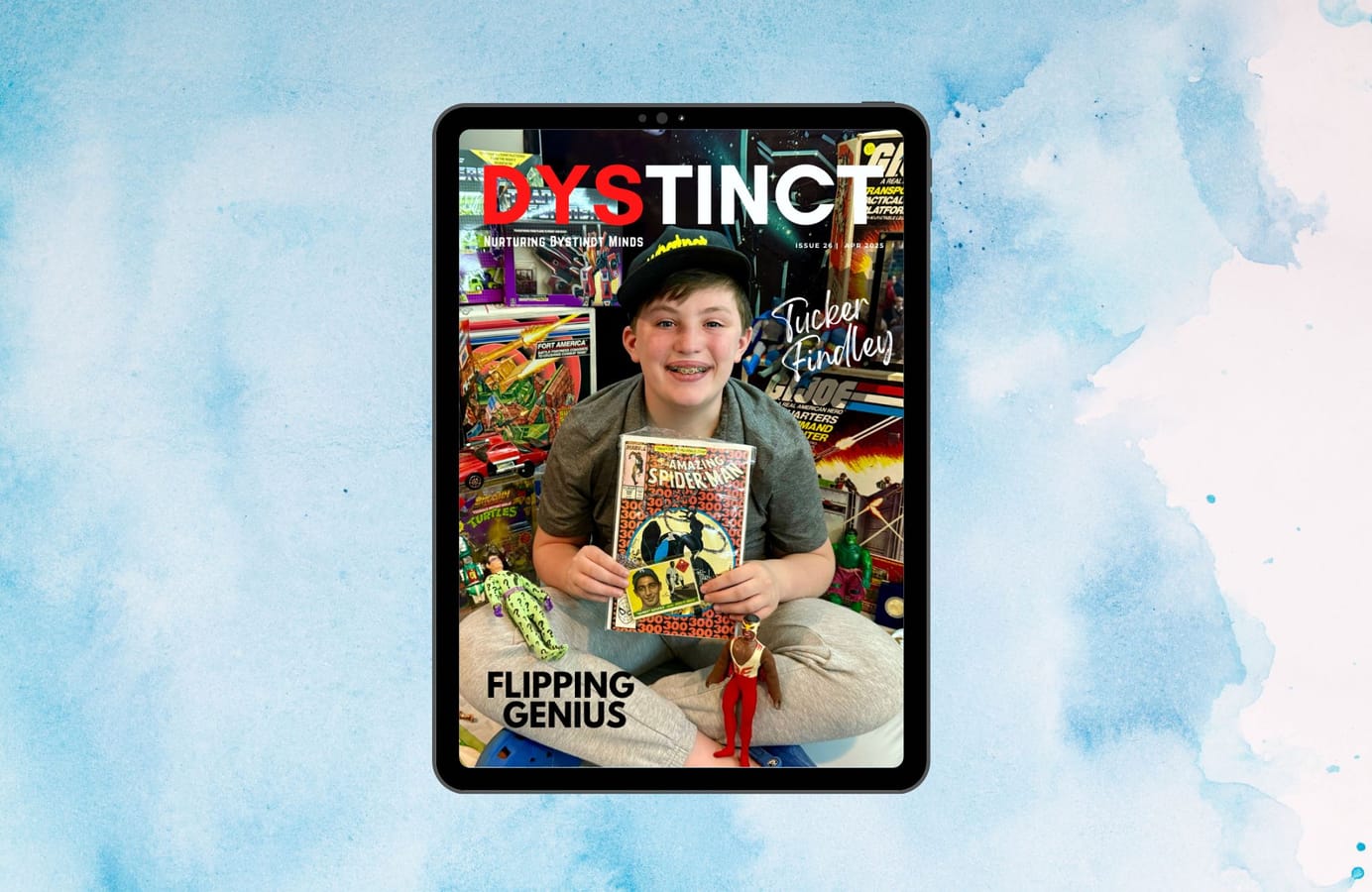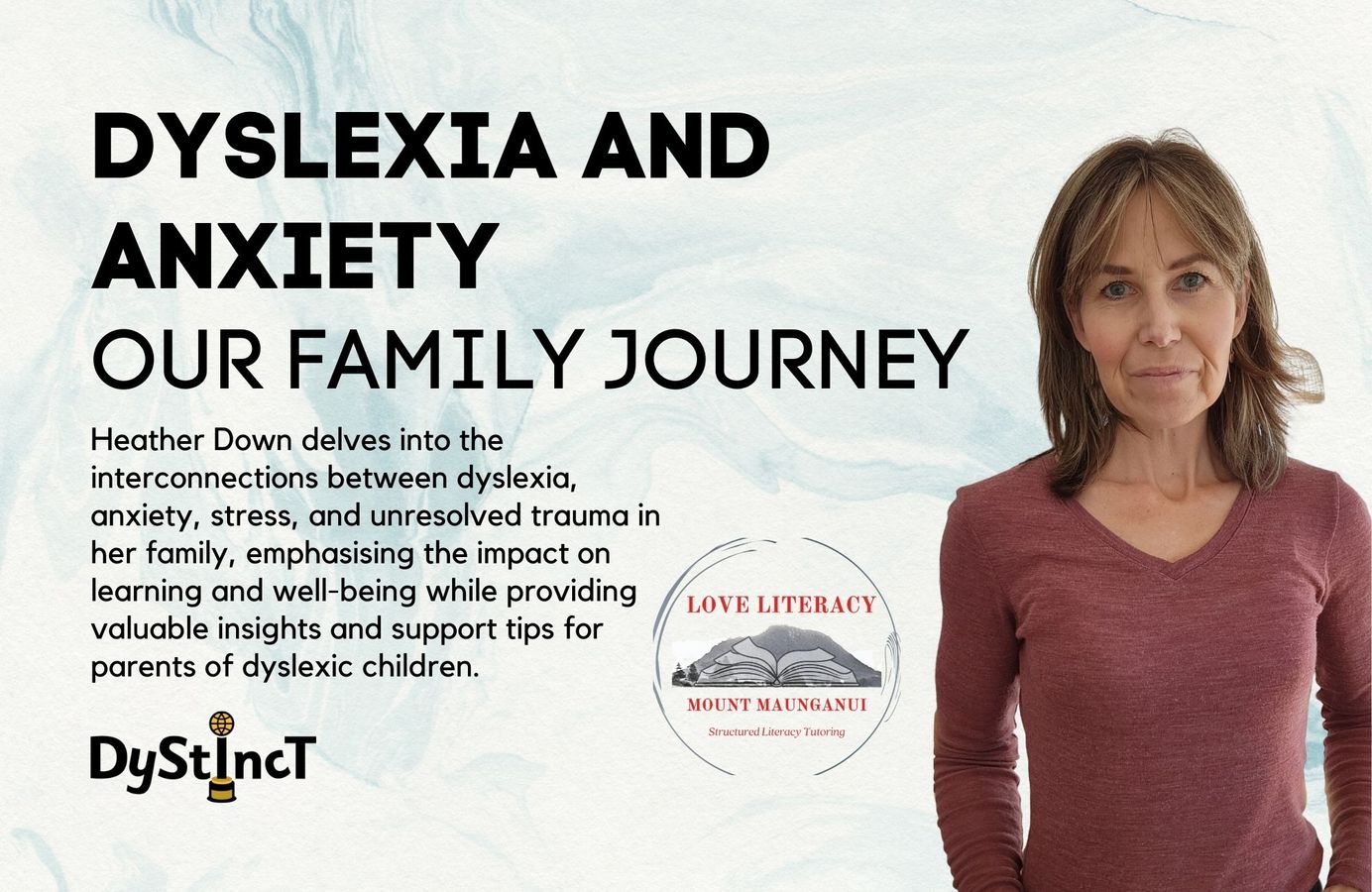
Issue 16: Dyslexia and Anxiety - Our Family Journey | Heather Down
Heather Down delves into the interconnections between dyslexia, anxiety, stress, and unresolved trauma in her family, emphasising the impact on learning and well-being while providing valuable insights and support tips for parents of dyslexic children.
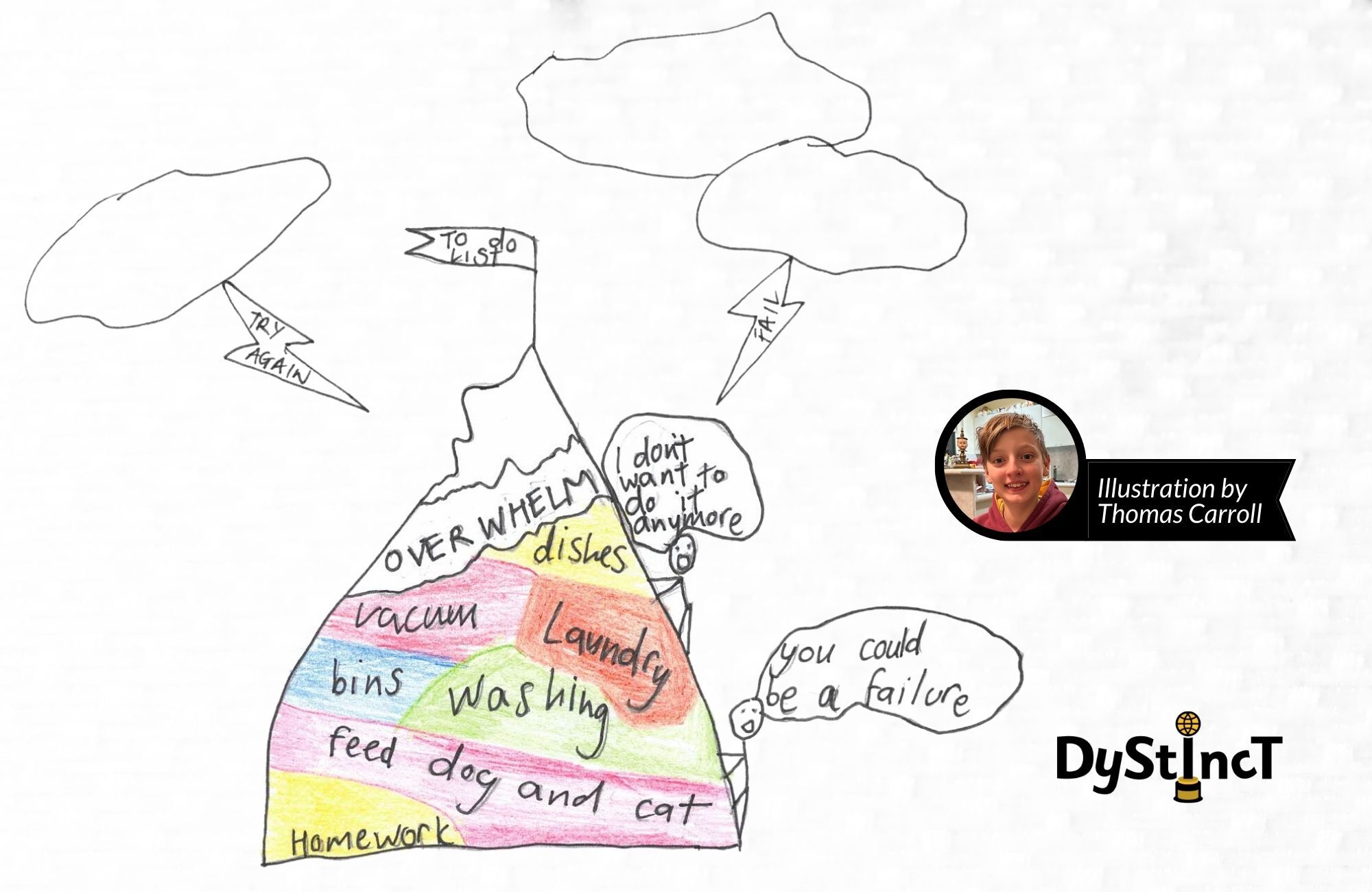
As parents of a dyslexic, dyscalculic, and dysgraphic son who was not diagnosed until he was 11 years old, we have found that the effects of anxiety, stress, and those early traumatic years are interwoven into his and our daily existence. At times more so than others. As a teacher and parent, I have a growing interest in understanding the intersection between dyslexia and anxiety and the impact those early traumatic years of our son's undiagnosed learning difficulties have on him today. We often question how this has affected him and how we, as his parents, can best support him as he approaches the National Certificate of Educational Achievement (NCEA) and beyond.
Our learning journey as a family with dyslexia started when our son was seven. We noticed that despite spending two and a half years at school, he was having great difficulty reading, writing, and spelling. Some days he would "get it," but not at all the next day. We were made aware by his teacher of his disruptive behaviour in class. We also noticed other things; he constantly had a sore tummy, headaches, angry outbursts at home, and a distinct disinterest in reading and writing activities.
As his school years progressed, so did the regression of his behaviour both at home and school, as well as the constantly sore tummy, headaches, and general feeling of unwellness. At the time, we were encouraged to pursue food allergies for his physical symptoms and use charts at home and school for his behaviour. We had ups and downs with his behaviour. We trialled a dairy-free, sugar-free, and low-gluten diet with him.
We didn't have a lot of knowledge about dyslexia. I knew the word, but not much else. We didn't know that it was a learning difficulty that is neurobiological in origin, nor did we understand that individuals are born with it. All we saw was a child who had poor spelling, writing, and reading abilities despite all the hard work we were doing at home to support him and foster a love of reading and writing. We also didn't understand anything about the co-morbidity of dyslexia occurring with dysgraphia and dyscalculia (among other conditions), as is the case with our son.
We had no idea of the impact his undiagnosed dyslexia was causing and did not make the connection that this was contributing to his behaviour and general feeling of unwellness.
By the time our son was 11, it seemed as though a week did not go by where we were not in the principal's office for our son's behaviour. He had mastered many things: the art of rudeness to get out of class, of needing to go to the toilet every 5 minutes (in fact, he trained his body to do this), and the art of chatting and distracting others around him so he was not the only one not completing work. He mastered the art of hiding behind his long fringe. What he had not mastered was learning to read, write and spell. Home life for us was at times toxic, with angry outbursts upon leaving school, meltdowns, overwhelm, and a pattern that we did not recognise at the time when Sunday nights would be full of arguments, fights, and anger. Unfortunately, this pattern of behaviour became learned and normal for him.
That same year, we pursued a dyslexia diagnosis. Lightbulbs started to switch on for us. However, we had no idea of the long road ahead based on the impact of five long years at school for a kid who did not know why his peers around him were learning, and despite his best efforts, he could not. He labelled himself as 'dumb' and spent a lot of time believing this.
When looking at trauma and anxiety, trauma can be defined as "an emotional response to a terrible event" (APA, 2023a), and anxiety can be defined as "an emotion characterised by feelings of tension, worried thoughts, and physical changes" (APA, 2023b). The emotional effects of trauma can include unpredictable emotions and physical symptoms. Physical symptoms can include feeling sick, having a sore stomach, and having constant headaches (APA, 2023a). Anxiety can also present with physical effects, such as trembling, sweating, and dizziness (APA, 2023b).
When faced with a phonological deficit, a writing deficit, and a mathematics deficit in a place built around literacy and numbers, we saw the results of our son being regularly confronted by tasks at school that were hard for him. This was the reason behind his extreme tension and worried thoughts. This was causing the manifestation of physical changes such as a sore tummy and feeling sick all the time. Acting out in class was the opportunity to escape from the learning environment. Our son would often have a racing heart, and for a while, he was convinced he was having a heart attack on a regular basis. This was most distressing for all of us.
Neither we as parents nor our son could figure out why these symptoms were occurring as we did not fully understand the nature of dyslexia, anxiety, or trauma and how these were linked. It's important to dig deeper and consider the bigger picture of what is going on.
Our son did not have the emotional intelligence or words at the age of 11 to explain his symptoms or why they were happening, and as his symptoms persisted, so did the decline in his school performance, along with the decline in the way he valued himself.
We, as parents, realised we needed to support our son and move him from a place of anxiety and stress to a place where he could experience feelings of competence and confidence. We began this journey after his dyslexia diagnosis and started by teaching him how his brain learns differently and why. We stressed the importance of understanding that he was not 'stupid' or 'dumb'. We enrolled him with a Multisensory Structured Language (MSL) tutor and spoke to his school about educational accommodations that would address the challenges he faced in class. Most importantly for our family, we sought counselling. The more I learned about dyslexia and the way the brain learns to read, write, and spell, I developed a passion for supporting my son. I did not want him to become a statistic - of any sort.
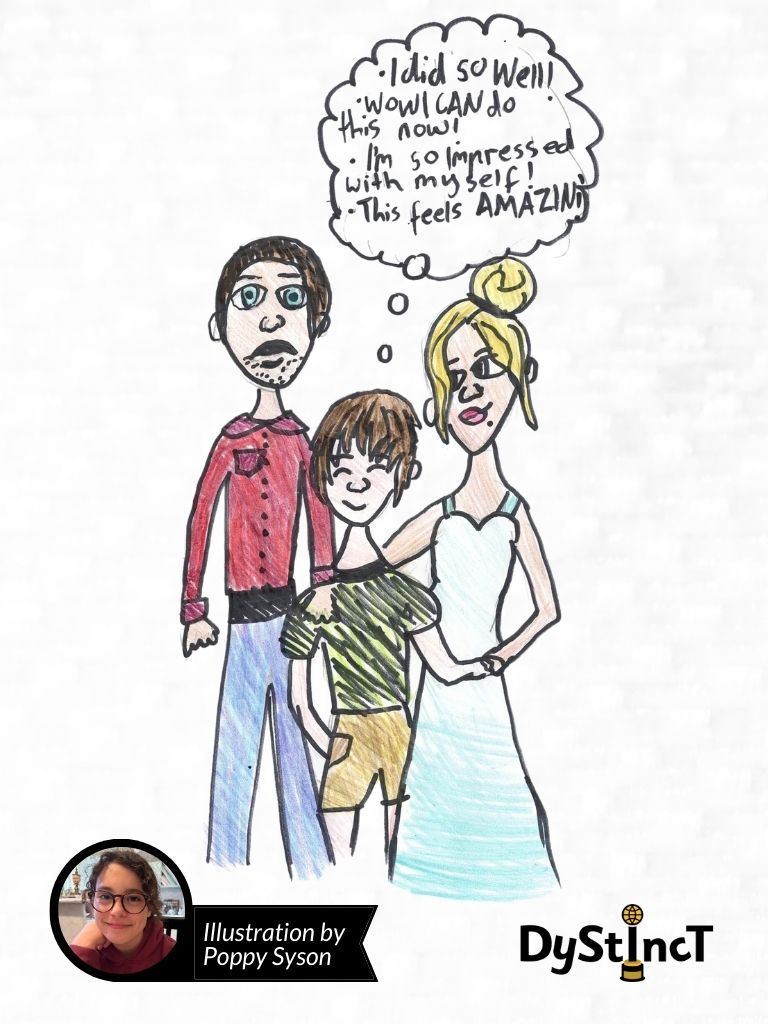
As our learning journey continued with dyslexia and anxiety and the effects of an undiagnosed learning difficulty, we made the decision as a family for me to leave my early childhood teaching job and retrain as an MSL Educator in order to teach our son to read, write and spell following Multisensory Learning based on the Science of Reading. It was important for us to have a wrap-around for our son so he could achieve.
This post is for paying subscribers only
SubscribeAlready have an account? Log in

